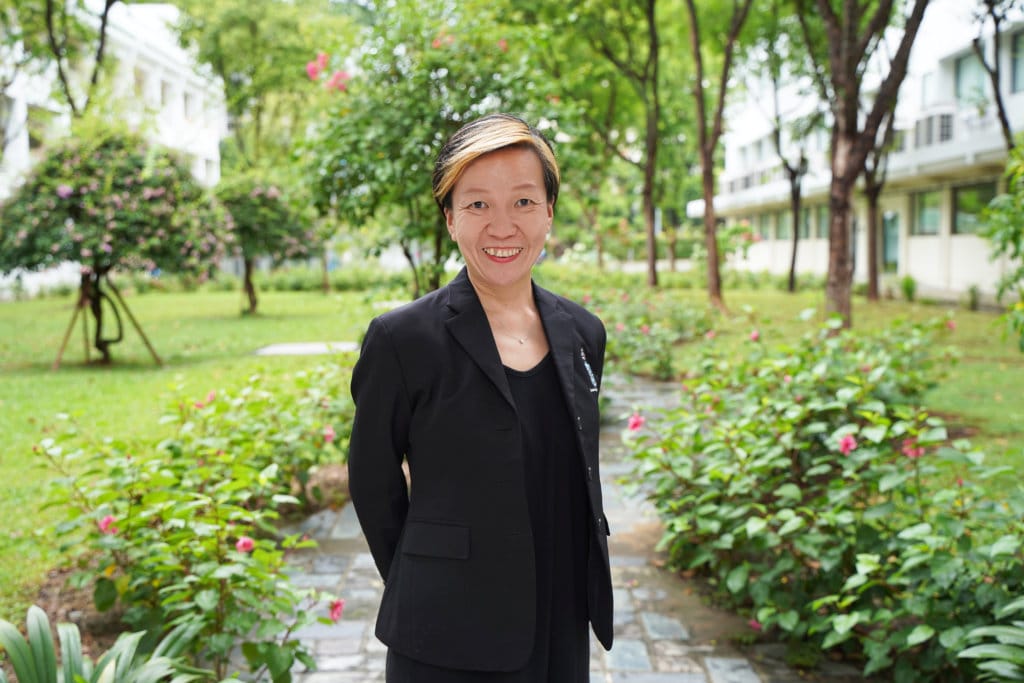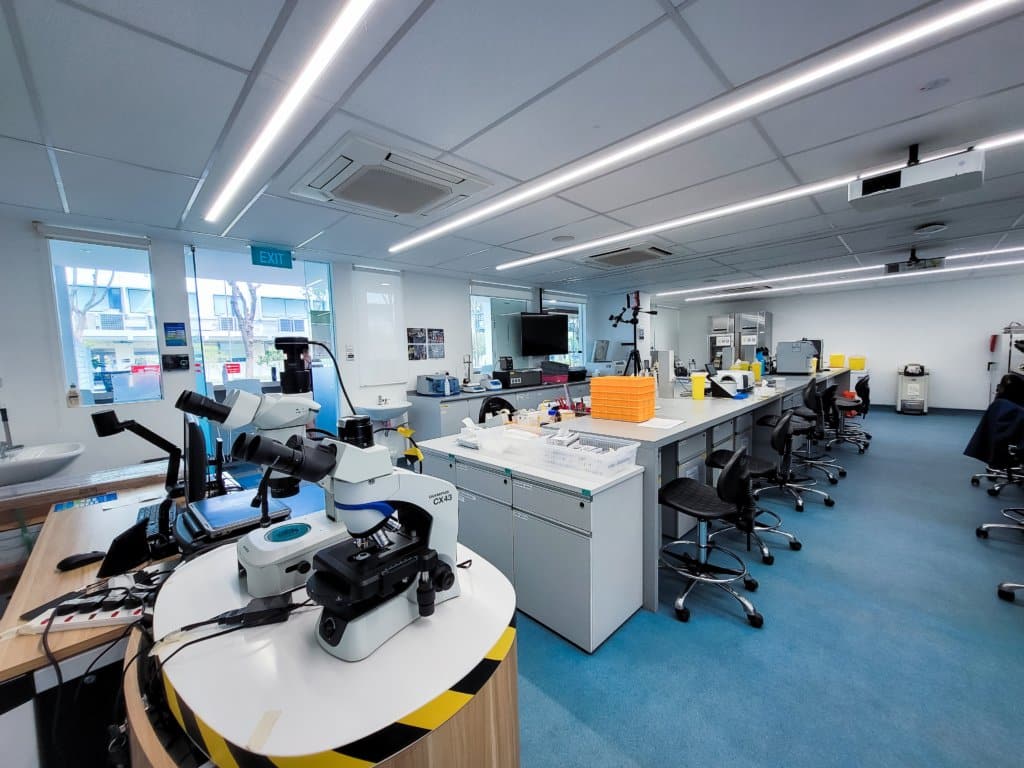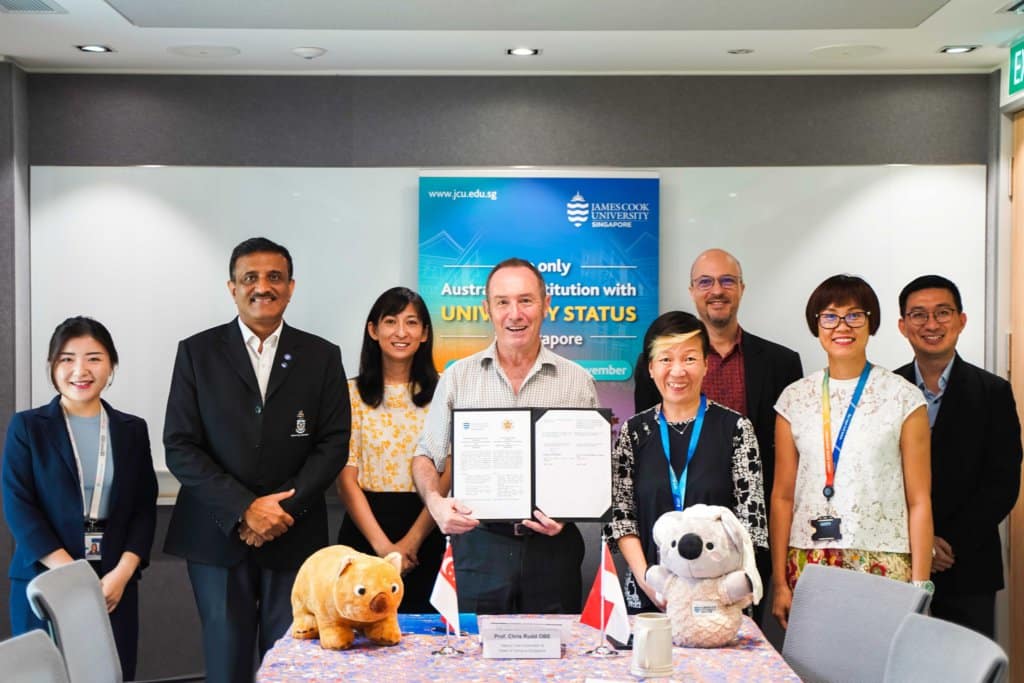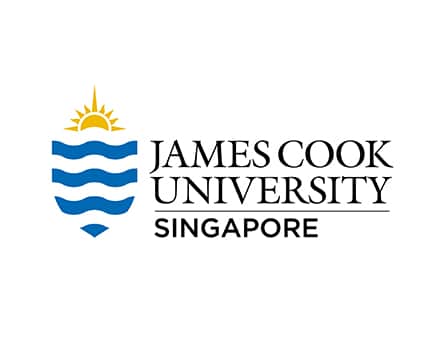How beneficial is it to study at JCU? We ask Professor May Tan-Mullins
In the realm of higher education, a startling truth prevails: the voices of students, brimming with remarkable ideas and untapped potential, often go unheard — but not in Singapore. In the “Lion City” is a James Cook University (JCU) branch campus determined to offer more students the chance to earn the same globally-recognised degrees offered at its main campus in Australia.
What started as JCU’s first international campus in 2003 with around 30 students is now an institution with almost 4,000 students, ranked among the top 2% of universities in the world. Spanning five blocks that are four storeys high, the campus exudes a cosy, yet dynamic feel.
Dean International and Chief Sustainability Officer Professor May Tan-Mullins often says it’s important to listen to and engage with students every step of the way. “It’s important to get a sense of what students want,” she adds. “It’s all really quite interesting — they give us fascinating ideas. I even have students trying to purchase plastic recycling machines to evolve waste into souvenirs.”
Truly, JCU, Singapore embraces dreams and visions. Hence why it views students as co-creators of their educational journeys and prioritises the importance of catering to each and every aspiration. With roots predominantly focusing on business programmes, the university kept a finger on the pulse of emerging industries and societal needs, and became the first in Singapore to offer clinical psychology programmes. Then, recognising the pressing need for expertise in cutting-edge fields, it introduced qualifications in IT, data science, cybersecurity, and other future-focused disciplines. At the heart of each programme, two core elements intertwine seamlessly: business acumen and leadership development.

Professor May Tan-Mullins’s research revolves around the political ecology of rising China, environmental and energy justice, poverty alleviation and building resilience for the poorest and most vulnerable in the tropics. Source: James Cook University, Singapore
“The focus is to understand what experts look like to industries, what kind of skills they hone and how they speak,” explains Professor Tan-Mullins, who was a consultant for the UNDP, National Bureau of Asian Research (US), Revenue Watch Institute (US) and the Chinese government. “It’s this level of engagement that keeps our programmes connected to the industry. As a result, a lot of our students get jobs. Some even develop start-up companies with sustainability and the environment in mind.”
AACSB-accredited business excellence
Plenty of the aspiring world-changers Professor Tan-Mullins speaks of can be found in JCU, Singapore’s AACSB-accredited School of Business. “Accreditation attracts students, but so do our programmes’ sustainability components,” she says.
A standout choice for fresh graduates is the Bachelor of Business and Environmental Science, which was designed to ensure that tomorrow’s business professionals consider carbon footprints, sustainable practices, global climate change, and waste management issues. “We take a very real-world approach to solving global problems, and the reality is that business and leadership skills are crucial to making change,” says Professor Tan-Mullins.
Students are encouraged to bridge the gap outside of classrooms, too. For example, Kouthaman Siraj Pillay, who is studying a Bachelor of Business (Majoring in Management), is the Environmental Science and Aquaculture Society’s (ESAS) Project Manager of Environment — leading tasks focused on environmental preservation and aquaculture protection. “One recent project we have been working on is a plastic recycling event, where we aim to collect plastic products from neighbouring blocks and recycle them,” he says. “I am excited to continue my involvement with ESAS and contribute to meaningful projects that positively impact the environment.”

Kouthaman and his team represented JCU, Singapore at the PMI Singapore Chapter Student Competition and won second place.
Source: James Cook University, Singapore
Prepare for Industry 4.0 with a future-focused degree
JCU, Singapore understands the importance of staying ahead of the curve. Hence why it frequently refreshes its offerings in accordance with industry shifts and to remain relevant. Last year, the School of Science and Technology introduced programmes in data science, the Internet of Things, aquaculture, and cybersecurity — each of which was designed to appeal to both new generations of learners and employers.
“We’re always keeping up with our students and making it easier for them to learn through high-tech facilities,” says Professor Tan-Mullins. “Our cybersecurity programme was developed alongside KPMG to ensure that our graduates follow in the footsteps of alumni who didn’t have to put too much effort into looking for a job — they went straight to top consulting firms because they possessed the skills these companies were looking for.”
Across programmes, the journey to reaching this level of mastery is incredibly experiential. William Simmanivong, a Bachelor of Science (Majoring in Internet of Things) student from Laos, loves Micro-controller Programming sessions precisely for how hands-on they are. “I find it very cool to fiddle with electronics,” he says.

Studying science and technology at JCU, Singapore unlocks access to an array of facilities, such as computer laboratories, aquaculture research, and various designated study areas.
Source: James Cook University, Singapore
Develop minds with an APAC-accredited psychology degree
Studying psychology doesn’t get any more real-world than at JCU, Singapore. “We work with many hospitals across Singapore to give our students a real sense of what practice is truly like, and the kind of challenges they can expect to face once they graduate,” says Professor Tan-Mullins.
“This is why a lot of our graduates go on to work in Singapore as clinical psychologists. Many even open their own centres to counsel those who are neurodiverse or facing learning challenges. A lot of them are entrepreneurs with their own thriving businesses.”
The School of Social and Health Science’s programmes are interdisciplinary. This is why Stefanus Suryono from Indonesia chose the Australian Psychology Accreditation Council (APAC)-accredited Bachelor of Psychological Science programme. “It offered a wide range of psychology subjects that could teach me about the different branches of psychology,” he says.
In the process, he found his niche, enabling him to seamlessly transition to a Master of Professional Educational Psychology at Universitas Gadjah Mada once he completed his undergraduate degree.

Last year, JCU, Singapore signed a comprehensive Memorandum of Understanding (MOU) with Universitas Gadjah Mada (UGM) Indonesia to collaborate on student/staff exchanges, as well as joint research.
Source: James Cook University, Singapore
Twenty years of academic excellence
As JCU, Singapore celebrates its 20th anniversary this year, it marks two decades of unwavering commitment to academic excellence. What started as a bold initiative to extend James Cook University’s renowned education model to Singapore has grown into a thriving institution that continues to shape the futures of countless students.
The passion that emanates from its dean, students, and alumni is palpable, reflecting their determination to reach new heights and conquer uncharted territories. As the institution enters its third decade, it vows to continue embracing new challenges and opportunities, further strengthening its position as a leading centre of learning and research in the region. If you would like to join them, click here to learn more about admissions.
Follow James Cook University, Singapore on Facebook, Twitter, Youtube, LinkedIn, and Instagram











